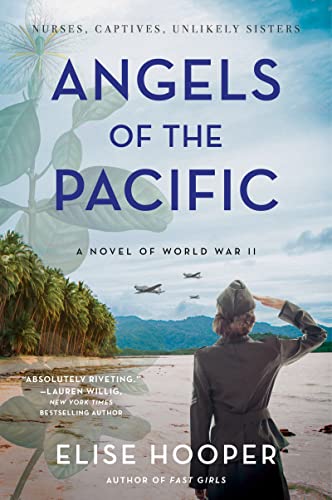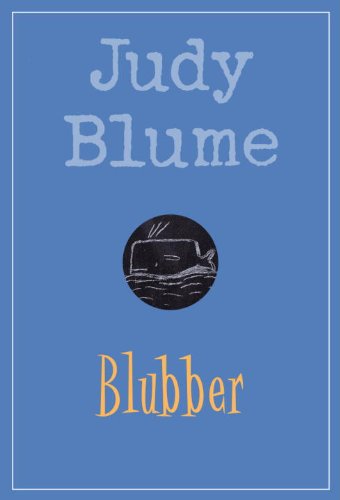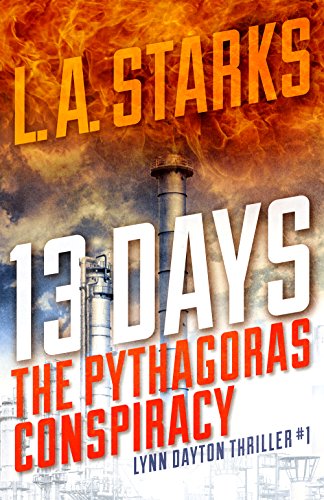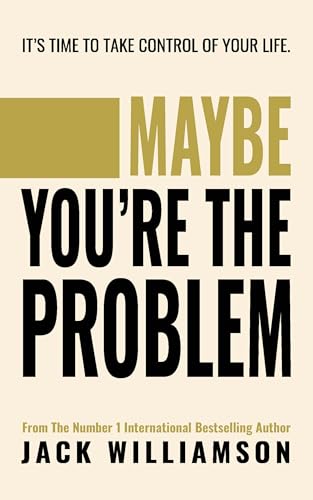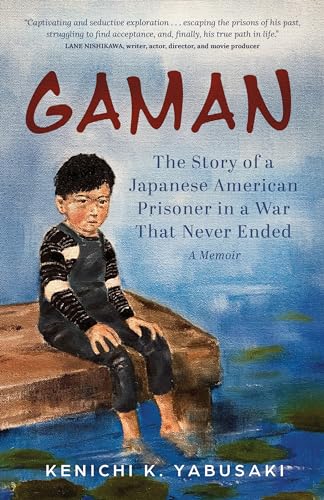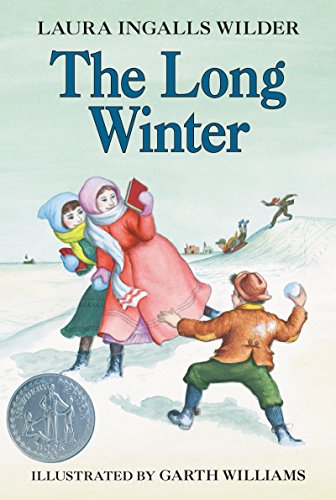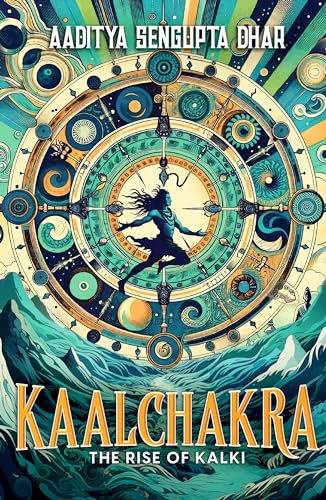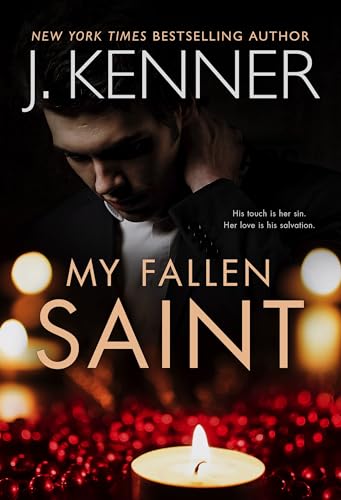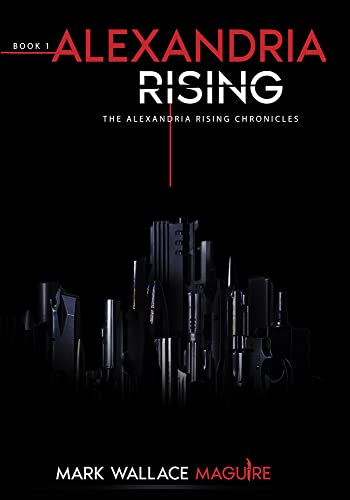in Contemporary Romance FictionVoted Best Book Series of 2013
by Supportive Business Moms, UK
– bestselling author Amy Manemann Another addictive romance from
New York Times and USA Today bestselling author Melissa Foster…It’s Book of 1 of The Remingtons, the steamy 5-book series featuring alpha male heroes and sexy, empowered women who are flawed, funny and passionate…50% off for a limited time only!
Ellie Parker is a master at building walls around her heart. In the twenty-five years she’s been alive, Dex Remington has been the only person who has always believed in her and been there for her. But four years earlier, she came to Dex seeking comfort and then disappeared like a thief in the night, leaving him a broken man.
A chance encounter sparks intense desires in Ellie and Dex. Desires that make her want to run–and make him want to feel. A combination of lust and fear leads these young lovers down a dangerous path. Is it possible to cross a burned bridge, or are they destined to be apart forever?
5-star praise for Game of Love:
“Another splendid and realistic breath of fresh air from Melissa….an easy, addictive and very enjoyable storyline.””…it all rang true…a really sweet (and somewhat steamy) love story….”
an excerpt from
GAME OF LOVE
(Love in Bloom, The Remingtons, 1)
by Melissa Foster
Chapter One
DEX REMINGTON WALKED into NightCaps bar beside his older brother Sage, an artist who also lived in New York City, and Regina Smith, his employee and right arm. Women turned in their direction as they came through the door, their hungry eyes raking over Dex’s and Sage’s wide shoulders and muscular physiques. At six foot four, Sage had two inches on Dex, and with their striking features, dark hair, and federal-blue eyes, heads spun everywhere they went. But after Dex had worked thirty of the last forty-eight hours, women were the furthest thing from his mind. His four-star-general father had ingrained hard work and dedication into his head since he was old enough to walk, and no matter how much he rued his father’s harsh parenting, following his lead had paid off. At twenty-six, Dex was one of the country’s leading PC game designers and the founder of Thrive Entertainment, a multimillion-dollar gaming corporation. His father had taught him another valuable lesson—how to become numb—making it easy for him to disconnect from the women other men might find too alluring to ignore.
Dex was a stellar student. He’d been numb for a very long time.
“Thanks for squeezing in a quick beer with me,” he said to Sage. They had about twenty minutes to catch up before his scheduled meeting with Regina and Mitch Anziano, another of his Thrive employees. They were going to discuss the game they were rolling out in three weeks, World of Thieves II.
“You’re kidding, right? I should be saying that to you.” Sage threw his arm around Dex’s shoulder. They had an ongoing rivalry about who was the busiest, and with Sage’s travel and gallery schedule and Dex working all night and getting up midday, it was tough to pick a winner.
“Thrive!” Mitch hollered from the bar in his usual greeting. Mitch used Thrive! to greet Dex in bars the way others used, Hey. He lifted his glass, and a smile spread across his unshaven cheeks. At just over five foot eight with three-days’ beard growth trailing down his neck like fur and a gut that he was all too proud of, he was what the world probably thought all game designers looked like. And worth his weight in gold. Mitch could outprogram anyone, and he was more loyal than a golden retriever.
Regina lifted her chin and elbowed Dex. “He’s early.” She slinked through the crowded bar, pulling Dex along behind her. Her Levi’s hung low, cinched across her protruding hip bones by a studded black leather belt. Her red hoodie slipped off one shoulder, exposing the colorful tattoos that ran across her shoulder and down her arms.
Mitch and Regina had been Dex’s first employees when he’d opened his company. Regina handled the administrative aspects of the company, kept the production schedule, monitored the program testing, and basically made sure nothing slipped through the cracks, while Mitch, like Dex, conceptually and technically designed games with the help of the rest of Thrive’s fifty employees—developers, testers, and a host of programmers and marketing specialists.
Regina climbed onto the barstool beside Mitch and lifted his beer to her lips.
“Order ours yet?” she asked with a glint in her heavily lined dark eyes. She ran her hand through her stick-straight, jet-black hair.
Dex climbed onto the stool beside her as the bartender slid beers in front of him and Regina. “Thanks, Jon. Got a brew for my brother?”
“Whatever’s on tap,” Sage said. “Hey, Mitch. Good to see you.”
Mitch lifted his beer with a nod of acknowledgment.
Dex took a swig of the cold ale, closed his eyes, and sighed, savoring the taste.
“Easy, big boy. We need you sober if you wanna win a GOTY.” Mitch took a sip of Regina’s beer. “Fair’s fair.”
Regina rolled her eyes and reached a willowy arm behind him, then mussed his mop of curly dark hair. “We’re gonna win Game of the Year no matter what. Reviewers love us. Right, Dex?”
Thrive had already produced three games, one of which, World of Thieves, had made Dex a major player in the gaming world—and earned him millions of dollars. His biggest competitor, KI Industries, had changed the release date for their new game. KI would announce the new date publicly at midnight, and since their game was supposed to be just as hot of a game as they expected World of Thieves II to be, if they released close to the release for World of Thieves II, there would be a clear winner and a clear loser. Dex had worked too hard to be the loser.
“That’s the hope,” Dex said. He took another swig of his beer and checked his watch. Eight forty-five and his body thought it was noon. He’d spent so many years working all night and sleeping late that his body clock was completely thrown off. He was ready for a big meal and the start of his workday. He stroked the stubble along his chin. “I worked on it till four this morning. I think I deserve a cold one.”
Sage leaned in to him. “You’re not nervous about the release, are you?”
Of his five siblings—including Dex’s twin sister, Siena, Sage knew him best. He was the quintessential artist, with a heart that outweighed the millions of dollars his sculptures had earned him. He’d supported Dex through the years when Dex needed to bend an ear, and when he wasn’t physically nearby, Sage was never farther than a text or a phone call away.
“Nah. If it all fails, I’ll come live with you.” Dex had earned enough money off of the games he’d produced that he’d never have to worry about finances again, but he wasn’t in the gaming business for the money. He’d been a gamer at heart since he was able to string coherent thoughts together, or at least it felt that way. “What’s happening with the break you said you wanted to take? Are you going to Jack’s cabin?” Their eldest brother Jack owned a cabin in the Colorado Mountains. Jack was an ex–Special Forces officer and a survival-training guide, and he and his fiancée Savannah spent most weekends at the cabin. Living and working in the concrete jungle didn’t offer the type of escape Sage’s brain had always needed.
“I’ve got another show or two on the horizon; then I’ll take time off. But I think I want to do something useful with my time off. Find a way to, I don’t know, help others instead of sitting around on my ass.” He sipped his beer and tugged at the neck of his Baja hippie jacket. “How ’bout you? Any plans for vacay after the release?”
“Shit. You’re kidding, right? My downtime is spent playing at my work. I love it. I’d go crazy sitting in some cabin with no connectivity to the real world.”
“The right woman might change your mind.” Sage took a swig of his beer.
“Dex date?” Regina tipped her glass to her lips. “Do you even know your brother? He might hook up once in a while, but this man protects his heart like it carries all of the industry secrets.”
“Can we not go there tonight?” Dex snapped. He had a way of remembering certain moments of his life with impeccable clarity, some of which left scars so deep he could practically taste them every damn day of his life. He nurtured the hurt and relished in the joy of the scars, as his artistic and peace-seeking mother had taught him. But Dex was powerless against his deepest scar, and numbing his heart was the only way he could survive the memory of the woman he loved walking away from him four years earlier without so much as a goodbye.
“Whoa, bro. Just a suggestion,” Sage said. “You can’t replace what you never had.”
Dex shot him a look.
Regina spun on her chair and then swung her arm over Dex’s shoulder. “Incoming,” she whispered.
Dex looked over his shoulder and met the stare of two hot blondes. His shoulders tensed and he sighed.
“It’s not gonna kill you to make a play for one of them, Dex. Work off some of that stress.” Sage glanced back at the women.
“No, thanks. They’re all the same.” Ever since the major magazines had carried the story about Dex’s success, he’d been hounded by ditzy women who thought all he wanted to talk about was PC games.
Regina leaned in closer and whispered, “Not them. Fan boys, two o’clock.”
Thank God.
“Hey, aren’t you Dex Rem?” one of the boys asked.
Dex wondered if they were in college or if they had abandoned their family’s dreams for them in lieu of a life of gaming. It was the crux of his concern about his career. He was getting rich while feeding society’s desire to be couch potatoes.
“Remington, yeah, that’s me,” he said, wearing a smile like a costume, becoming the relaxed gamer his fans craved.
“Dude, World of Thieves is the most incredible game ever! Listen, you ever need any beta testers, we’re your guys.” The kid nodded as his stringy bangs bounced into his eyes. His friend’s jaw hung open, struck dumb by meeting Dex, another of Dex’s pet peeves. He was just a guy who worked hard at what he loved, and he believed anyone could accomplish the same level of success if they only put forth the effort. Damn, he hated how much that belief mirrored his father’s teachings.
“Yeah?” Dex lifted his chin. “What college did you graduate from?”
The two guys exchanged a look, then a laugh. The one with the long bangs said, “Dude, it don’t take a college degree to test games.”
Dex’s biceps flexed. There it was. The misconception that irked Dex more than the laziness of the kids who were just a few years younger than him. As a Cornell graduate, Dex believed in the value of education and the value of being a productive member of society. He needed to figure out the release date, not talk bullshit with kids who were probably too young to even be in a bar.
“Guys, give him a break, ’kay?” Regina said.
“Sure, yeah. Great to meet you,” the longer-haired kid said.
Dex watched them turn away and sucked back his beer. His eyes caught on a woman at a booth in the corner of the bar. He studied the petite, brown-haired woman who was fiddling with her napkin while her leg bounced a mile a minute beneath the table. Jesus. Memories from four years earlier came rushing back to him with freight-train impact, hitting his heart dead center.
“I know how you are about college, but, Dex, they’re kids. You gotta give them a little line to feed off of,” Regina said.
Dex tried to push past the memories. He glanced up at the woman again, and his stomach twisted. He turned away, trying to focus on what Regina had said. College. The kids. Give them a line to feed off of. Regina was right. He should accept the hero worship with gratitude, but lately he’d been feeling like the very games that had made him successful were sucking kids into an antisocial, couch-potato lifestyle.
“Really, Dex. Imagine if you’d met your hero at that age.” Sage ran his hand through his hair and shook his head.
“I’m no hero.” Dex’s eyes were trained on the woman across the bar. Ellie Parker. His mouth went dry.
“Dex?” Sage followed his gaze. “Holy shit.”
There was a time when Ellie had been everything to him. She’d lived in a foster home around the corner from him when they were growing up, and she’d moved away just before graduating high school. Dex’s mind catapulted back thirteen years, to his bedroom at his parents’ house. “In the End” by Linkin Park was playing on the radio. Siena had a handful of girlfriends over, and she’d gotten the notion that playing Truth or Dare was a good idea. At thirteen, Dex had gone along with whatever his popular and beautiful sister had wanted him to. She was the orchestrator of their social lives. He hadn’t exactly been a cool teenager, with his nose constantly in a book or his hands on electronics. That had changed when testosterone filled his veins two years later, but at thirteen, even the idea of being close to a girl made him feel as though he might pass out. He’d retreated to his bedroom, and that had been the first night Ellie had appeared at his window.
“Hey, Dex.” Regina followed his gaze to Ellie’s table; her eyes moved over her fidgeting fingers and her bouncing leg. “Nervous Nelly?” she teased.
Dex rose to his feet. His stomach clenched.
“Dude, we’re supposed to have a meeting. There’s still more to talk about,” Mitch said.
Sage’s voice was serious. “Bro, you sure you wanna go there?”
With Sage’s warning, Dex’s pulse sped up. His mind jumped back again to the last time he’d seen her, four years earlier, when Ellie had called him out of the blue. She’d needed him. He’d thought the pieces of his life had finally fallen back into place. Ellie had come to New York, scared of what, he had no idea, and she’d stayed with him for two days and nights. Dex had fallen right back into the all-consuming, adoring, frustrating vortex that was Ellie Parker. “Yeah, I know. I gotta…” See if that’s really her.
“Dex?” Regina grabbed his arm.
He placed his hand gently over her spindly fingers and unfurled them from his wrist. He read the confusion in her narrowed eyes. Regina didn’t know about Ellie Parker. No one knows about Ellie Parker. Except Sage. Sage knows. He glanced over his shoulder at Sage, unable to wrap his mind around the right words.
“Holy hell,” Sage said. “I’ve gotta take off in a sec anyway. Go, man. Text me when you can.”
Dex nodded.
“What am I missing here?” Regina asked, looking between Sage and Dex.
Regina was protective of Dex in the same way that Siena always had been. They both worried he’d be taken advantage of. In the three years Dex had known Regina, he could count on one hand the number of times he’d approached a woman in front of her, rather than the other way around. It would take Dex two hands to count the number of times he’d been taken advantage of in the past few years, and Regina’s eyes mirrored that reality. Regina didn’t know it, but of all the women in the world, Ellie was probably the one he needed protection from the most.
He put his hand on her shoulder, feeling her sharp bones against his palm. There had been a time when Dex had wondered if Regina was a heavy drug user. Her lanky body reminded him of strung-out users, but Regina was skinny because she survived on beer, Twizzlers, and chocolate, with the occasional veggie burger thrown in for good measure.
“Yeah. I think I see an old friend. I’ll catch up with you guys later.” Dex lifted his gaze to Mitch. “Midnight?”
“Whatever, dude. Don’t let me cock block you.” Mitch laughed.
“She’s an old…not a…never mind.” My onetime best friend? As he crossed the floor, all the love he felt for her came rushing back. He stopped in the middle of the crowded floor and took a deep breath. It’s really you. In the next breath, his body remembered the heartbreak of the last time he’d seen her. The time he’d never forget. When he’d woken up four years ago and found her gone—no note, no explanation, and no contact since. Just like she’d done once before when they were kids. The sharp, painful memory pierced his swollen heart. He’d tried so hard to forget her, he’d even moved out of the apartment to distance himself from the memories. He should turn away, return to his friends. Ellie would only hurt him again. He was rooted to the floor, his heart tugging him forward, his mind holding him back.
A couple rose from the booth where Ellie sat, drawing his attention. He hadn’t even noticed them before. God, she looked beautiful. Her face had thinned. Her cheekbones were more pronounced, but her eyes hadn’t changed one bit. When they were younger, she’d fooled almost everyone with a brave face—but never Dex. Dex had seen right through to her heart. Like right now. She stared down at something in her hands with her eyebrows pinched together and her full lips set in a way that brought back memories, hovering somewhere between worried and trying to convince herself everything would be okay.
Her leg bounced nervously, and he stifled the urge to tell her that no matter what was wrong, it would all be okay. Dex ignored the warnings going off in his mind and followed his heart as he crossed the floor toward Ellie.
Chapter Two
NO WAY. NO fucking way did Dina just leave me alone on my first night in the city. Ellie stared at the table. You know how to get to my apartment, right? Just give us an hour; that’s all I ask, Dina had said before handing her an extra key. Great. Dina and a guy she’d known for less than an hour might or might not be having sex while she slept on the couch. I just need to get through the interviews; that’s it. I can do this. Her mind weaved through the tangled afternoon of rushing to Union Station, missing her train and having to wait for the next one. Spending three hours on the train practicing for her interviews before pulling into Penn Station, exhausted and late. She was contemplating ordering a drink—or five—when very definitely male fingers touched her table. Why did they look familiar?
“Ellie?”
Ellie sucked in a breath at the sound of his voice. Dex. Oh, God. Dex. Her gaze followed those familiar fingertips to the large hands that had kept her safe when she’d climbed into his window late at night. Her heart remembered, thundering in her chest as her eyes traveled up his sinewy, muscled arms, and she took in all six-foot-something of him, ending at his seductive, midnight-blue eyes. Jesus, they still slayed her.
“Dexy?” His name came out as one long breath. She needed to stand, to hug him, to say hello, but her body wouldn’t obey. She was frozen in the booth like a wallflower. Ellie was no wallflower, damn it. She closed her eyes for a beat and centered her mind. It’s Dex. Just Dex. The truth was, Dex had never been just Dex. But she knew better than to get too attached to anyone. Even Dex. Especially Dex. Self-preservation was a skill Ellie had honed at a young age.
Ellie didn’t have time or energy to dwell on the unkindness of her upbringing. She soaked up the good memories, and knowing she was always on the brink of chaos, she swept the bad memories under the carpet with mummified silence and pushed on. No matter how shitty the day appeared—and she’d seen her share of shittiness in her twenty-five years—nothing compared to moving from one foster family to the next, all the while praying her mother would finally find sobriety and do the right thing by her. But her mother had drunk herself to death when Ellie was eight, ending her internal longing for the mother she’d never have. Admitting to the awfulness of her upbringing would be like falling right back into that needy little girl, and she was never going back there.
Dex ran his hand through his dark hair. He still wore it long on top and a little shorter in the back. And damn if he didn’t have that sexy facial hair thing going on. The hair on his chin was lighter than the hair on top of his head—closer to the color of Ellie’s. Not quite black, not quite dark chocolate. His thick eyebrows and dark lashes still shadowed his eyes, giving him that serious brooding look that had always made her heart skip a beat. God, you’re here. And you’re hot. No. I can’t go there. Shit.
“I can’t believe you’re here,” he said, sliding into the seat across from her. “It’s been—”
“Too long.” Ellie cleared her throat to strengthen her voice. She didn’t want to rehash the details of when she’d come to see him four years earlier. She’d fought the painful memories day in and day out, tried to forget the weekend ever happened—Oh, how I tried to forget. But she could no sooner forget a day with Dex, much less the best weekend of her life. She hadn’t even been brave enough to return the few messages he’d left, trying to figure out why she’d gone away. The thought of hearing the pain in his voice was too much. She’d had to leave. She’d had to separate herself from him. Dex was better off without her hanging around his neck like a needy, fucked-up noose.
She dropped her eyes to the table, barely able to breathe past the guilt of what she’d done. He was right there with her again. He was always there for her—and she was always soaking him in, taking the comfort he had to give. And breaking his beautiful heart. She kept her eyes trained on the table to keep from…what? Begging for forgiveness? Crawling into his arms and telling him how much she loved him? How he’d scared the living shit out of her four years earlier when he’d professed his love for her? Fuck. There was nothing she could say to fix what she’d done, and she was in no position to make up excuses or promise a damned thing, which was why she hadn’t had the courage to call him when she’d decided to return to New York. She’d worried that he wouldn’t want to see her again after the way she’d left the last time. The way she’d always left, without so much as a goodbye.
“Four years,” he reminded her.
She cringed. It was silly of her to think he’d let her off the hook for leaving without saying goodbye. For not answering his desperate attempts to reach her. For not explaining why she’d left. As she looked at him now, she didn’t see any such demand in his eyes. Then again, Dex had never demanded a thing of her.
He reached across the table and touched her fingertips.
Ellie stared at his hand, desperately wanting to answer the pull in her heart and take his hand in hers. Dex’s hand had been her lifeline on too many nights to count, but now she didn’t reach for his fingers. She couldn’t. It would be too easy to crawl into the safety of him and allow herself to soak up the comfort he’d surely provide—and too easy to forget that she came with even more baggage now, tangled all around her like a wicked web. She was a different woman than Dex had known before. A stronger woman. Even if it hurt like hell to be strong sometimes. Even if looking at Dex, knowing how badly she’d hurt him, sliced her heart wide open.
Dex made no move to pull his hand away. “What are you doing in New York?”
Running away. “Applying for teaching jobs.” Ellie wanted to pour her heart out to Dex and let him erase the hurt of the last few weeks and help her to start fresh. She needed to forget, but Ellie sucked at forgetting. That was part of what made her strong. Remembering every shitty thing that had ever happened to her allowed her to never fall into the same circumstances twice. Of course, running away helped, too.
“So you did it.”
Dex’s lips curved into a smile that said so much more than he was happy for her. He’d believed in her when no one else had. God, she missed that. God, I’ve missed you. He leaned back. His rumpled black T-shirt clung snuggly to his chest. Tattoos snaked down his left arm. New tattoos that she hadn’t seen before. Ellie felt a stirring down low in parts of her that had been quiet for a very long time, which confused the hell out of her because she and Dex hadn’t progressed to being those kinds of friends in the past. Although, had she stayed…No. She wouldn’t think about that. His eyes never wavered from hers, and as Dex’s long fingers trailed away from hers, she longed for them to return.
“Yeah. I made it, Dex.” She met his gaze and shook her head, feeling her own lips wanting to smile and hesitating. The tension in her shoulders eased. “Some days I can barely believe it, but I have the paper to prove it. I’ve got a master’s in minority and urban education from the University of Maryland. They gave me a scholarship, which was really helpful.” Pride swelled in her chest alongside the familiar comfort of being with Dex that she was trying not to allow herself to enjoy. He had a way of doing that to her. Sneaking comfort in through the cracks in her armor.
“I never had any doubt,” he said.
“I heard about Thrive. I guess all those years of tinkering paid off.” She remembered many nights when she’d crawl through his window to find him wearing nothing but boxers and sitting beside a stack of technical books and magazines. She’d maneuver around memory boards and computer paraphernalia, articles and notebooks. God, there were always notebooks scattered about his bedroom floor. He’d lift his arm, and she’d crawl in bed beside him and settle into the safety of him. His arm would drop to her shoulder and he’d pull her close while he read, and she calmed her nerves or slept. Or sometimes, she just breathed in the security of him.
Dex nodded. “Yeah. It’s a nice gig.”
Nice gig. That was so like him, downplaying his success. She’d seen his picture on the front of Gamer magazine several times over the past few years. One of her fifth-grade students had written a report about him right before she’d left Maryland. It had been a well-written report, noting not only his multimillion-dollar business but also his double degree in computer science and mathematics from Cornell. At the time, she’d thought about contacting him, but given the way her life had been unraveling with each breath, she hadn’t wanted to cast her chaos onto him again. Not after they’d shared that weekend together and she’d realized just what Dex had meant to her—which scared the shit out of her at the same time.
Not after she’d run.
She always ran.
And now here he sat, making time for her once again while she ran away from the shit storm caused by dating a man she hadn’t known was married—a man who had hurt her both emotionally and physically. God, she couldn’t let Dex know. Right after he killed the asshole, he’d probably look at her differently, even though she hadn’t known he was married. She couldn’t be seen as a victim again. It was too damn hard. Goddamn Bruce Kellerman. She was done with men. She pushed the thought of Bruce aside. She had bigger problems to deal with, like trying to get a job and find an apartment, not to mention making it through the night worrying about some strange guy in the next room.
“Hey, do you have time for a drink?”
No. I need to find Dina’s place, and I…hell. The familiar comfort of being with Dex was too good to ignore. “Yeah, sounds good.”
Dex flagged down a waitress and ordered a beer, then lifted his eyebrows to Ellie. “Rum and Coke?”
She rolled her eyes. “God, am I still that high schoolish?” She wished she could order something more adult, like a cosmo, a manhattan, or a martini, but the truth was, her high school taste for rum and Coke had stayed with her like white on rice. “Yeah, bring it on.” She might as well relax and enjoy the evening. Her first interview wasn’t until ten the following morning, so even if she stayed out a little late catching up with Dex, she’d have time to sleep in.
… Continued…
Download the entire book now to continue reading on Kindle!
(Love in Bloom: The Remingtons, 1)
by Melissa Foster
4.4 stars – 90 reviews!
Special Kindle Price $1.99!
(reduced from $3.99 for limited time only)


